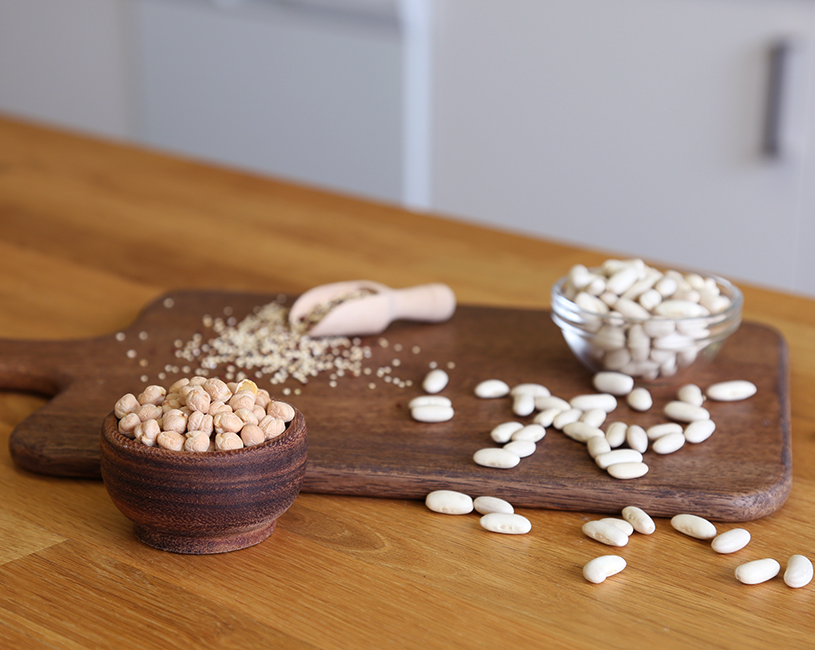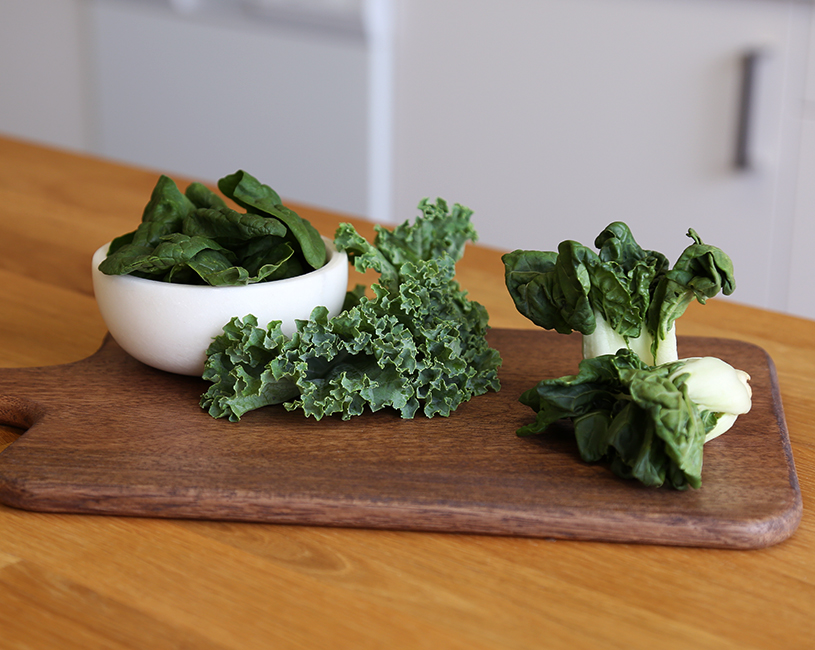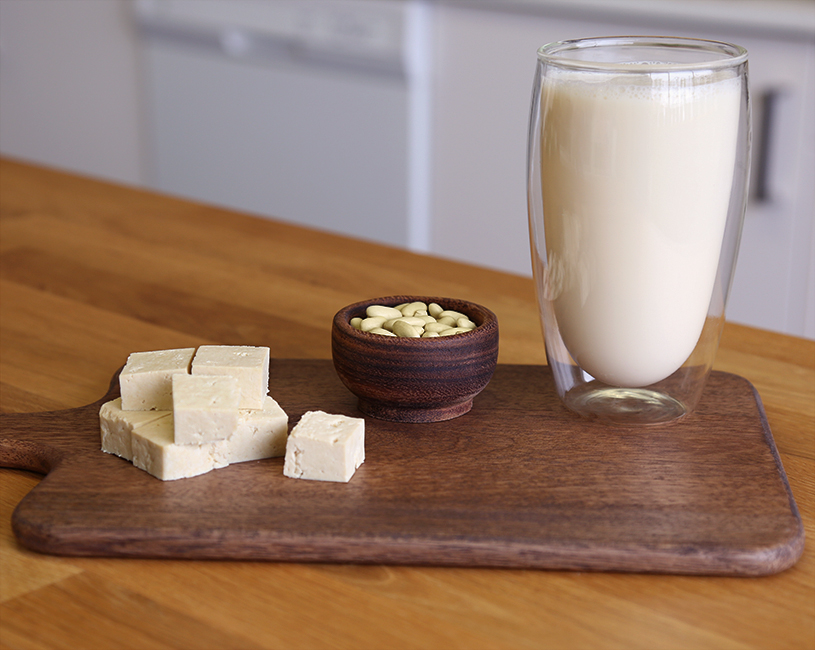Whether you’re fully plant-based or just trying to eat more meatless meals, chances are you’ve discovered one thing. Tell someone you’re eating vegan, and they probably have an opinion about it. And, more often than not, that opinion is misinformed, exaggerated or just plain wrong. So, what’s true? Is veganism the healthiest diet of all time, or a fast-track to malnutrition? The fact is, it depends on what you eat. Some of the most nourishing foods around are plant-based, from fruits and veggies to beans and grains. But some not-so-healthy foods happen to be vegan too. Oreos and French fries, anyone?
To help cut through the noise, we’re taking on some of the most persistent myths surrounding the vegan diet. While going full vegan isn’t for everyone, we believe most people would benefit from at least eating balanced, plant-based meals more often. And armed with the right information, you’ll see it really isn’t so intimidating.
Whether you’re vegan or simply looking to eat more plant-based meals, services like our vegan catering in Toronto offer balanced options that make it easier to embrace this lifestyle.
Myth: Vegans Don’t Get Enough Protein

To this myth, we say…a resounding “nope!” The fact is, it’s easy to get enough protein with a fully plant-based diet, as long as you’re eating enough calories. So where does this misconception come from? The fact is, many plant-based proteins are considered “incomplete,” as they don’t have all nine of the amino acids your body need. This means that vegan eaters do need to be smart about which protein sources they eat in order to cover their bases. So, rice and beans on their own are “incomplete”… but together they give you everything you need. For event meals, our gluten-free catering in Ottawa provides plant-based protein options that cater to a range of dietary needs.
That said, you don’t need to combine veggie protein sources at the same meal! As long as you’re eating different protein sources throughout the day, you will be covered. And since almost all foods contain some protein (even veggies), chances are you’ll hit your daily requirements without even trying. Plus, many vegan foods, like quinoa and seitan, are already a complete protein as-is. Score!
Plant-based protein sources:
- Soy products (tofu, tempeh, edamame)
- Seitan (wheat gluten meat substitute)
- Legumes (lentils, beans)
- Nuts and seeds
- Veggies
- Whole grains (rice, quinoa, millet)
Not convinced? Just ask one of the countless professional athletes following a vegan diet. Or, think about this: amino acids originally come from plants, not animals. We just get amino acids from meat and dairy sources because those animals consumed them in plants. Why not cut out the middle man?
Myth: Vegans are Iron Deficient
While many people associate iron with red meat, it’s still very much present in a vegan diet. In fact, vegans and vegetarians are no more susceptible to iron deficiency than the rest of the population. Many plant-based foods are high in iron – take dark leafy greens, soy products, quinoa and tahini, just to name a few. Plus, a diet high in vitamin C (thanks again, kale!) helps you absorb iron up to six times better. And some extra-super foods, like broccoli and bok choy, are already high in both iron and vitamin C – so you get more benefits out of every bite.
Myth: You Can’t Get Calcium Without Dairy

Think you’re missing out on calcium without a daily glass of milk? Believe it or not, you can get all the calcium you need from a balanced, plant-based diet. How? Dark, leafy greens to the rescue…again! That’s right. Those magical dark green veggies like collard greens, kale, broccoli and boy choy are rich in calcium. Plus, they come packed with other benefits like fibre, potassium and other vitamins and minerals – and no saturated fat or added hormones to worry about. And, since these veggies are low in absorption-slowing oxalates, you absorb calcium twice as efficiently as you would from milk.
Aside from those do-it-all greens, you can also get calcium from almonds, blackstrap molasses and many fortified foods, from soy milk and juice to oatmeal and breakfast cereals. And if you’re worried about maintaining your bone health, there are other healthy choices you can make – like getting enough exercise, vitamin D (hello, sunshine!) and cutting down on alcohol.
Myth: Kids Can’t Eat a Vegan Diet
Okay, so it’s easy to get everything you need from a vegan diet as an adult. But is it really safe for kids? According to the Academy of Nutrition and Dietetics, it totally can be. A well-planned vegetarian or vegan diet can be nutritionally adequate for people of all ages – not just grownups. Think about it: veggies, grains and legumes are some of the most nutritionally dense foods around…so it’s no surprise they would provide all the nutrients a growing kid needs. That said, if you’re dealing with a picky eater or a kid with a small appetite, you might need to supplement their diet with healthy snacks between mealtimes, and some vitamin-fortified foods like certain breakfast cereals, whole grain breads and milks.
But even with those considerations, the numbers don’t lie. Studies show that children following a vegan diet tend to eat more fruits and veggies and less saturated fat. Just keep an eye on their intake of vitamin B12, iron, calcium, vitamin D and protein, and you’ll know they have everything they need to thrive.
Myth: It’s Unhealthy to Eat Too Much Soy

Maybe you read an article somewhere a few years ago…or mentioned you were going vegan to a relative and they made a comment. Aren’t tofu and soy milk actually bad for you? Well, not really. In fact, soy is a great source of beneficial nutrients and protein. So why the bad reputation? Isoflavones, also known as “plant estrogens.” These little guys bind to the same cell receptors as estrogen, so people worry that they have the same bodily effects. But the truth is a little more complicated: in some tissues, isoflavones have weak estrogen-like effects; in others, they seem to have anti-estrogenic effects. And, in some, they have no effect at all.
So should we worry? Probably not. Studies show that a diet rich in soy reduces the risk of breast cancer by up to 50 percent. So go forth, tofu and be merry. Just be careful to choose organic soy products so you aren’t consuming pesticides or other chemicals along with all that plant-based protein.
In conclusion…
So there you have it. If you’ve been feeling nervous about following a more plant-based diet for nutritional reasons…no more excuses! It’s easy to get all the nutrients you need from fruits, veggies, legumes and grains. And if you’re already vegan and you’re just tired of people making inaccurate comments about your diet, hopefully we helped you out, too.
Did we miss a major vegan myth? We want to know about it! Drop us a line at blog@madradish.com.


